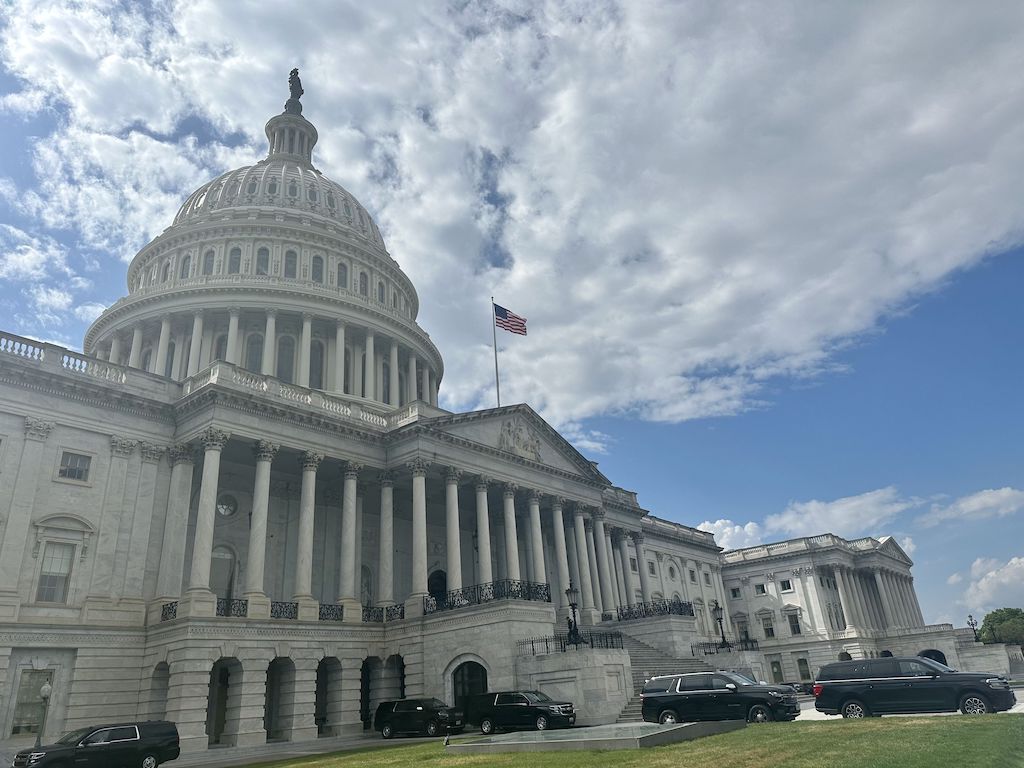WASHINGTON – Since 1790, the Census Bureau has taken a head count of every person, regardless of citizenship, in the United States so Congress can determine how members of the House of Representatives and Electoral College votes are distributed.
House Republicans want to make this process a thing of the past.
The House Tuesday voted 205-199 along party lines to consider a bill that could add a citizenship question to the decennial census and exclude non-citizens from the population used to calculate congressional district representation.
Then-President Donald Trump pushed to add the citizenship question to the 2020 census but was blocked by the Supreme Court in 2019 over concerns about dishonest disclosure of the reason behind asking the question.
The census last asked the entire population about citizenship status in 1950. Since then, the government has presented a citizenship question to a sample of households through the American Community Survey and an occasional added survey to the census.
The census is not only used to determine the number of House members and Electoral College votes per state, but also to decide how to distribute federal resources across the country.
Democratic lawmakers, including New Mexico Rep. Melanie Stansbury, said the citizenship question itself could make non-citizens afraid of filling out the census, leading to a decrease in federal funding and representation.
“These counts would have devastating implications for not only our electoral system but the well-being of our families and communities,” Stansbury said Tuesday during debate on the House floor.
Republicans, such as New York Rep. Nick Langworthy, argued that including non-citizens in the population for apportionment rewards illegal immigration and is unfair to U.S. citizens.
“Allowing non-citizens to vote dilutes the voice of the American citizen and opens the door for manipulation and exploitation of our electoral system,” Langworthy said.
Removing the weight of non-citizens in the distribution of federal representation could change the party divide in the House.
States with large immigrant populations – namely California, Texas and Florida – would each have had one less representative if “unauthorized immigrants” had been excluded from the post-2020 census apportionment, according to a 2020 Pew Research Center report.
The 14th Amendment states that the apportionment of representatives is determined by a count of the “whole number of persons.”
Rep. Jamie Raskin, D–Maryland, said during a House Rules Committee meeting Monday that the bill was unconstitutional under the 14th Amendment, adding that the bill would exacerbate the undercount of the Hispanic population.
“This bill would destroy the accuracy of the census,” Raskin said.
The 2020 census had a statistically significant undercount of Hispanics in the United States, with almost 5% not counted, according to Census Bureau reports. This undercount has been attributed to the COVID-19 pandemic and fears that answers to census questions could be shared with other agencies.
The Census Bureau cannot legally share any identifiable information with anyone, including law enforcement.
However, Rep. Erin Houchin, R–Indiana, said Tuesday that since the proposed legislation would still allow counting non-citizens in the census, the change would not greatly impact federal assistance or an accurate count of the population, calling such claims a “red herring.”
A 2019 Census Bureau report said a question asking about citizenship is sensitive for non-citizens and could affect the self-response rate.
Beyond the impacts of political representation, Johnny Zuagar, president of the American Federation of Government Employees Census Council 241, told Capital News Service that the bill, even if not passed, could complicate the jobs of census employees and the underfunded Census Bureau.
Bringing up the possibility of a census citizenship question again, Zuagar said, will likely make immigrants unsure of if they can trust the Census Bureau not to report them to immigration authorities.
Census workers would have to take time to explain the citizenship question and the safety of the responses, Zuagar said, complicating their work.
During the 2020 census, he said, census employees had to work with immigrant communities to regain that lost trust.
“We’re just here to measure the country and follow the Constitution. You can trust us,” Zuagar said.
The House will likely vote on the bill this week. If passed in the House, the measure would move to the Senate, controlled by the Democrats.

